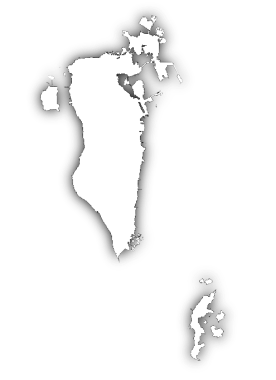By Owais Arshad
Some years ago I was consulting for a well-known Bahraini public sector enterprise which required me to sift through a large cache of its internal documents. Among the files, I discovered the organization’s internal compensation policy which neatly laid out differing salary structures based entirely on nationality.
Regardless of one’s qualification, or years of experience this pillar of the Bahraini economy, as a matter of stated policy, compensated British and Western expats more lucratively; provided them with more generous accommodations, as well as access to better educational opportunities for their children. Although hardly a revelation, it was nonetheless striking to see it documented so brazenly and a reminder of the island’s thin veneer of modernity. Bahrain remains a place where the quality of life is often dictated exclusively by the passport you hold.
For the Bahraini state, the ability to offer different terms to different nationalities also helps them utilize this segment of the population (close to 50% of the total) for their own political purposes. A well-fed, compliant, and powerful Western expatriate force, for instance, offers a crucial link to foreign powers that furnish the Kingdom with weapons, succour and international protection from condemnation of its excesses.

A typical job advert for the Gulf
However, like a modern human zoo, each nationality serves its own utility. For most Pakistanis living in Bahrain this means accepting a trade-off: accepting job opportunities (many of which are illusory promises of financial security) that place them in a precarious position compared to the island’s Shi’a majority. This is because a large numbers of their fellow (Sunni) countrymen have been imported to swell the ranks of Bahrain’s armed forces and police and are used to quell any unrest that may erupt within the country. Naturally, this means that relations between the Pakistani community and the large Shi’a majority remain strained. During the most recent uprising, allusions to “mercenaries” were frequently made by the opposition.
Pakistanis also happen to constitute a significant proportion of the working class population of the Kingdom. As a result, they are subject to the same abuses that are often visited upon Indians, Filipinos, Nepalese, and Bangladeshis. This encompasses everything from outright exploitation, to physical as well as sexual abuse with little recourse to justice.
The case of the Pakistani community exemplifies the cynical genius of the Kingdom’s expatriate policy which is designed to buttress the government’s hold on the economy and security. The labourers provide a useful method to build a modern state on the cheap based on a system of legalized abuse. This also has the useful advantage of keeping wages depressed and helps to economically isolate the Shi’a majority who are then further tied to the largesse of the government.
Similarly, the presence of Pakistanis in the military and policing functions provides a force that will not hesitate to follow orders and, due to its lack of local character, guards the regime from being ousted by insurrection. They also serve as cheap cannon fodder – the lynching and burning of Pakistani policemen, for instance, do not impact Bahrain’s Sunni community, and allow them to sustain their aggressive security policies without any push back.
The existence and persistence of this well-defined passport hierarchy that trespasses on all aspects of a foreign worker’s life is hardly noticeable if one is placed in a favourable position within this configuration but bedevils life for those expatriates hailing from the Subcontinent, the Philippines or other developing countries. One can spend their entire career or childhood in Bahrain and never notice the systemic injustices that are institutionalized in the country.
